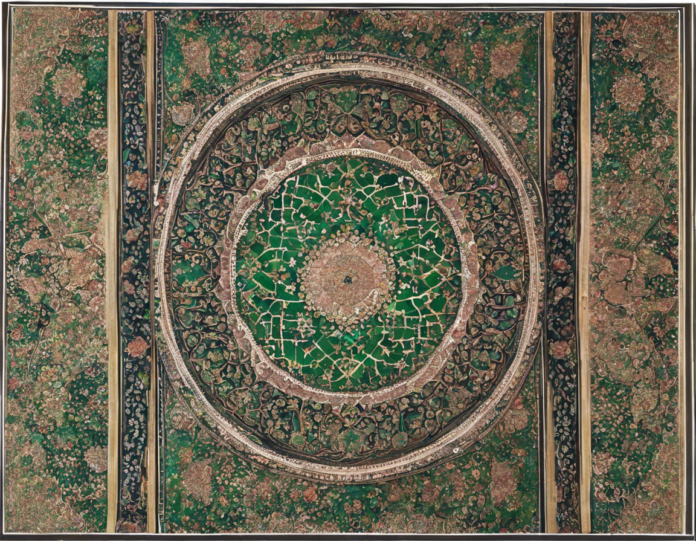Introduction
In the rich tapestry of Muslim culture, Sab A Barat holds a significant place. Also known as Shab-e-Barat or the Night of Forgiveness, this occasion is observed with great fervor and devotion by Muslims around the world. Though practices and customs associated with Sab A Barat may vary across different regions and communities, its essence remains rooted in faith, reflection, and seeking forgiveness. This article aims to explore the significance of Sab A Barat in Muslim culture, shedding light on its historical background, religious significance, traditional observances, and the values it represents.
Historical Background
The roots of Sab A Barat can be traced back to the Islamic tradition. It is believed to be the night when Allah decides the destiny of all individuals for the coming year. According to Hadiths, on this night, Allah descends to the lowest heaven and forgives the sins of the believers who seek repentance. The concept of seeking forgiveness and repentance is central to the observance of Sab A Barat, reflecting the mercy and compassion of Allah in Islam.
Religious Significance
Sab A Barat is seen as a night of blessings and forgiveness in Islamic theology. Muslims believe that on this night, Allah bestows His mercy upon the believers, pardoning their sins and granting them a fresh start. It is a time for introspection and spiritual renewal, as believers seek to purify their hearts and seek forgiveness for their shortcomings. The Quranic verse “And is not your Lord sufficient to suffice His servant” (Quran, Chapter 25, Verse 31) underscores the trust and reliance that Muslims place in the forgiveness and mercy of Allah on this auspicious night.
Traditional Observances
Across different cultures and communities, various customs and rituals mark the observance of Sab A Barat. One common practice is spending the night in prayer and supplication, seeking forgiveness and mercy from Allah. Muslims may engage in reciting the Quran, offering special prayers such as Nawafil, and making duas (supplications) for themselves and their loved ones. It is also a time for visiting the graves of departed relatives, offering prayers for their souls, and seeking blessings for the deceased.
Values Represented
Sab A Barat embodies several core values that are integral to the practice of Islam. Forgiveness lies at the heart of this occasion, emphasizing the importance of seeking pardon for one’s transgressions and extending clemency to others. Mercy is another key value reflected in the belief that Allah, the Most Merciful, forgives the sins of those who repent sincerely. Compassion towards fellow beings is also emphasized during Sab A Barat, as Muslims are encouraged to pray for the well-being of others and seek reconciliation with those they may have wronged.
FAQs
-
What is the significance of seeking forgiveness on Sab A Barat?
Seeking forgiveness on Sab A Barat is considered highly auspicious as Muslims believe that Allah showers His mercy and pardons the sins of those who repent sincerely on this night. It is an opportunity for spiritual cleansing and renewal. -
Are there specific prayers to be recited on Sab A Barat?
While there are no fixed prayers mandated for Sab A Barat, Muslims often engage in reciting the Quran, offering Tahajjud prayers, and making heartfelt duas for forgiveness and blessings on this night. -
Is it customary to visit graveyards on Sab A Barat?
In many cultures, visiting graveyards on Sab A Barat is a common practice as Muslims seek to remember the deceased, offer prayers for their souls, and seek blessings for them. It is seen as a way to connect with the spiritual realm and reflect on the transient nature of life. -
How do different Muslim communities around the world observe Sab A Barat?
Different Muslim communities may have varying traditions and customs associated with the observance of Sab A Barat. While some focus more on prayer and supplication, others may emphasize charity, feasting, and community gatherings as part of the celebration. -
What is the importance of charity and kindness on Sab A Barat?
Charity and kindness hold immense importance on Sab A Barat, reflecting the values of generosity and compassion in Islam. Muslims are encouraged to extend help to the less fortunate, feed the hungry, and practice acts of kindness as a way to earn blessings on this auspicious night.
Conclusion
In conclusion, Sab A Barat occupies a special place in Muslim culture, symbolizing a night of forgiveness, blessings, and spiritual reflection. As Muslims engage in prayers, supplications, and acts of kindness on this occasion, they reaffirm their faith in the mercy and compassion of Allah. The values of forgiveness, mercy, and compassion that Sab A Barat embodies serve as a guiding light for believers seeking to draw closer to their Creator and lead a life marked by piety and righteousness. May this auspicious night bring solace, blessings, and forgiveness to all who observe it with sincerity and devotion.

